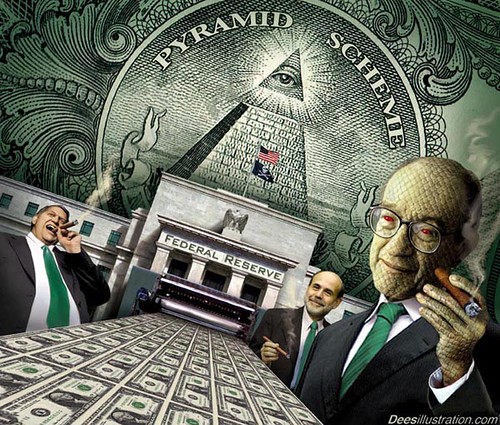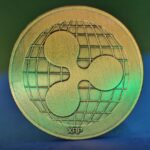Federal Reserve Bank is most powerful bank of the world. The Federal Reserve manages the US dollar, sets global interest rates and is a key player in maintaining financial stability.
Since its inception, the independence of this institution from political pressures has been a non-negotiable.
Now, that independence is under test. According to reports, President Donald Trump has been considering options for firing Fed chair Jerome Powell.
The fallout will not be limited to just the US if Trump goes through with his plan. This could cause a global chain reaction affecting markets, currencies and credit systems.
Can the Fed Chair be fired?
Powell’s removal is only possible “for cause” and not because of policy differences. This barrier is now being questioned.
Trump’s team of lawyers is reviewing a Supreme Court decision involving independent agencies.
Trump may be able to fire Powell without reason if the Court weakens, or even overturns 1935 Humphrey’s Executor precedent.
Click here to read more about Trump’s War with the Federal Reserve, Inside the Legal Fight to Fire Jerome Powell
Trump called Powell’s decision to not cut interest rates sooner “too early and wrong,” and said he had the authority to “remove him real fast.”
White House advisors study whether firings can be made under the new interpretations of law.
Powell’s dismissal could be a possibility if the Court grants the go-ahead. This would be a costly move.
What will happen to the Fed when Powell leaves?
Powell isn’t a single-man central banking institution. He is the chairman of a committee made up of 12 members that determines monetary policy.
Removing him from the position would probably trigger a wave resignations.
This gives Trump the opportunity to install his loyalists and turn the Fed into an instrument of politics.
Immediate cost is the loss of independence by central banks.
Investors no longer trusted the Fed’s ability to control the money supply or fight inflation based on data from the economy.
Central bank becomes part of executive branch It could take years to restore the credibility lost.
Turkiye is a prime example, as President Erdogan removed the central bank officials who refused to cut rates.
This resulted in an inflation of over 70%, currency freefall and capital flight.
The US may have more protections built in, but it is still the same direction.
What would the markets do?
Bond market is the first one to respond. Investors assumed that any Powell replacement would continue Trump’s policy of lowering rates even though inflation has not yet reached the target of 2%.
This implies that the government will borrow more money, financed through quantitative easing.
Investors will dump their bonds, causing the yields on Treasury securities to spike. The bond prices would plummet, causing massive losses to banks, insurers, and pension funds.
The liquidity could be drying up fast. Treasuries can be used in the financial market as collateral.
Institutions would be forced to reduce their debt if the value of these assets dropped. This could lead to a global credit crunch.
Initial shocks to the stock market are likely. The US stock exchange accounts for around 60% of global equity markets.
The S&P 500 could be hit by a sharp drop, triggering circuit breaks as in previous crisis situations.
A new Fed chairman could spark a short rally, but it would not last. Equities would become more volatile due to rising yields, fear of inflation and a Fed that is driven by policy.
What is the fate of the Dollar?
Dollar demand could spike in the near future. Dollar demand can temporarily be boosted by forced liquidations or margin calls. Longer term the outlook is bleaker.
Trust is the key to the strength of our dollar. Investors’ trust in the US dollar will diminish if they believe that US monetary policies are no longer driven by long-term stability.
Expectations of inflation would be unanchored. Inflation becomes self-fulfilling if markets think the Fed will not raise rates in order to control rising prices.
This would result in a lower dollar, higher import prices and a fall in real wages.
Dollar is the reserve currency of the world. It will have an impact on every economy if it loses this status.
Companies and countries would begin to shift away from the dollar in favor of euro, yuan or commodities-backed assets. The de-dollarization process would accelerate.
What would be the impact on real economic activity?
Housing market may experience confusion. Mortgage rates could drop if the Fed reduces rates due to political pressure. This would give wealthy buyers a brief window.
However, rising inflation will offset this benefit. Higher prices, stricter lending standards and market instabilities would negate any gains for most people. The process of becoming a homeowner would be more difficult.
The credit markets will tighten. Treasury yields is used for everything from corporate bonds to car loans.
Risk premiums will rise if yields no longer are seen as reliable.
The cost of borrowing for companies would increase. The first to be affected would likely be small businesses, which are sensitive to credit terms.
The foreign direct investment will slow down or even stop. Multinationals cannot make long-term planning in a nation where the monetary policies are unpredictable and politicized.
Finaly, the global flow of trade would be completely altered as capital moves to more secure jurisdictions.
Can this system be broken?
One of the final guardrails for the US economy is the institutional credibility of the Fed.
Firing Powell could send the message that politics has now infiltrated even this safety net.
Investors would start to price in the “political risks” of US assets. This is something that’s usually reserved for developing markets.
Updates to risk models will be made. The institutions might start to think about capital controls and political interference when assessing their US exposure.
If the dollar begins to falter, G7 countries may consider working together in order to stabilise global markets. Some nations are discussing alternative currencies to the reserve currency system.
Already, the discussion about a basket of mixed currencies and special drawing rights is escalating.
What is the long-term impact?
Replacing Powell would not just mean replacing one central-banker. The Federal Reserve would be completely changed in how it operates, and its role within the economy.
Markets will adjust if it is used as a tool by the White House. Perhaps not to the US’s benefit.
Trust is not easily gained once it has been lost.
US economic stability would be eroded and the US could become a risky borrower.
It would be more difficult to control inflation. It would be more difficult to raise capital. The economic growth rate would be more volatile.
The immediate reaction of the market to Powell’s firing may be strong, but long-term danger is real.
Investors, foreign governments, and institutions would not only see it as a personnel change, but also as a regime change.
Federal Reserve will no longer be viewed as a global anchor in finance. The Federal Reserve would no longer be viewed as an anchor for global finance.
It would be the end of a era.
The post Trump firing Jerome Powell: What will happen to US Economy? This post may change as new information unfolds.
This site is for entertainment only. Click here to read more




